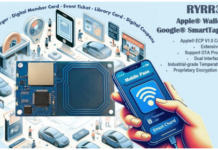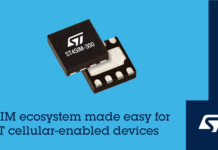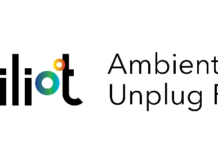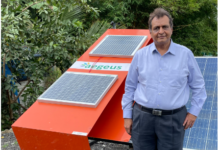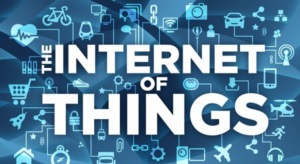
UK-based IoT specialist Telit and Swedish telecoms group Tele2 have introduced Telit simWISE, a ‘first-of-its-kind’ cellular module-embedded technology, designed to replace traditional SIM cards in connected devices. The initial release of simWISE for mass-market 2G devices is the first step in Telit’s roadmap to deliver a broad set of technologies related to embedded connectivity, a press release announced. Alon Segal, CTO of Telit, said: ‘As the M2M/IoT market continues to mature, devices will continue to get less expensive and smaller, making it easier for enterprises to harness the business-growing potential of IoT. simWISE is a step in that direction. Removal of the SIM card from product design dramatically reduces the time to market, complexity, and total cost of ownership of IoT devices.’
France’s Actility has teamed up with Swedish LoRaWAN-based IoT network provider Blink Services to expand low power wide area (LPWA) IoT services across Sweden. Blink, a member of the LoRa Alliance and currently specialising in smart city services, operates a LoRa network which is already live in Helsingborg and Landskrona, with several additional cities earmarked for imminent deployment. Applications targeted include smart traffic management services.
Italian start-up Things Mobile – which launched its first-of-a-kind international IoT/M2M SIM card service at the end of last month – has announced that initial customer response has been ‘extraordinary’, with ‘thousands of requests from all over the world’ from companies in diverse sectors such as logistics, medical, security, agritech, smart home, etc. Things Mobile has signed its first batches of distribution deals, whilst the Things Mobile online shop is now fully functional for all international customers. The Things Mobile M2M/IoT SIM card currently connects on a permanent roaming basis with 250 network partners in over 165 countries, and claims to offer ‘over 50%’ cost savings.
In the residential user market, Portuguese multi-service telco MEO has introduced its Meo Smart Home hub service, allowing control of home security, automation, entertainment and other applications via mobile devices, with packages including video cameras, door/window sensors, alarm, smoke detector, remote control and control centre equipment.
In a similar launch, O2 Czech Republic is offering its O2 Smart Box package combining a modem, Wi-Fi router and specialised device for smart household functions, controlled via a mobile application. IoT devices which can be controlled/monitored via the Smart Box run on frequency bands within 868.4MHz-869.85MHz, according to the company website. Sales begin in August at an ‘introductory’ price of CZK3,499 (USD150) with a door sensor included for free, and initially supporting three main smart home services – home security, remote control and fire sensor.
Out on the roads, Bell Canada has partnered Hyundai AutoEver Telematics America (HATA), a subsidiary of Hyundai Motor Group, to deliver a range of connected telematics services including security, safety, diagnostics and infotainment to Hyundai and Kia vehicles over Bell’s national mobile network. Starting this summer, the new suite of services, including emergency roadside assistance, automatic collision notification, remote start, climate control, local search, remote door lock/unlock, maintenance alerts and on-demand diagnostics, will be available via Hyundai’s BlueLink and Kia’s UVO Intelligence in-vehicle systems, provided free for the first five years.
Saudi Arabia’s Mobily Business has signed a strategic partnership agreement with Saudi-based IoT specialist Machinestalk to develop fleet and asset management services to government and private sectors. A company statement said that Mobily’s investment toward expansion in IoT solutions complies with the ongoing efforts to support digital transformation and develop the telecommunication and IT market to achieve the Kingdom’s ‘Vision 2030’ goals.
Deutsche Telekom’s German division Telekom Deutschland has announced an agreement with the city of Darmstadt to develop a smart parking system using the telco’s ‘Park and Joy’ application, via which drivers can locate available parking spaces and pay via smartphone. Rollout will start in 2018, aiming to cover most of the city centre by the end of 2019.
Down on the farm, New Zealand telco Spark has partnered the National Institute of Water and Atmospheric Research (NIWA), Farmlands and Ballance Agri-Nutrients to pilot the ‘Connecting Farms’ service, which provides connectivity and monitoring/control via smart sensor technologies. Begun in April, the pilot will eventually encompass 60 farms across the country.
Finally – and apologies for ending on a ‘baaaa-d’ note – but Telia Norway is piloting a sheep-tracking system based on NB-IoT technology in partnership with start-up Nortrace. 1,000 sheep on summer pastures in Jaeren (Rogaland) are being fitted with a monitoring device linked to a tracking system/interface developed by Nortrace, whilst Telia is providing the IoT modules and NB-IoT connectivity on its own network, which went live in December 2016.
Source: www.telegeography.com





